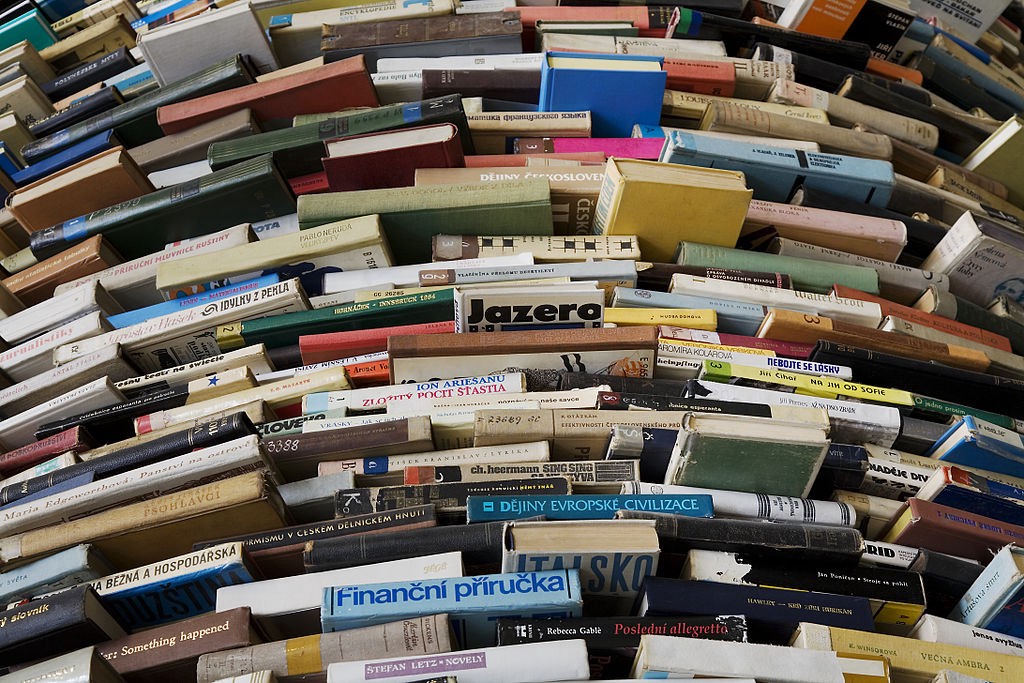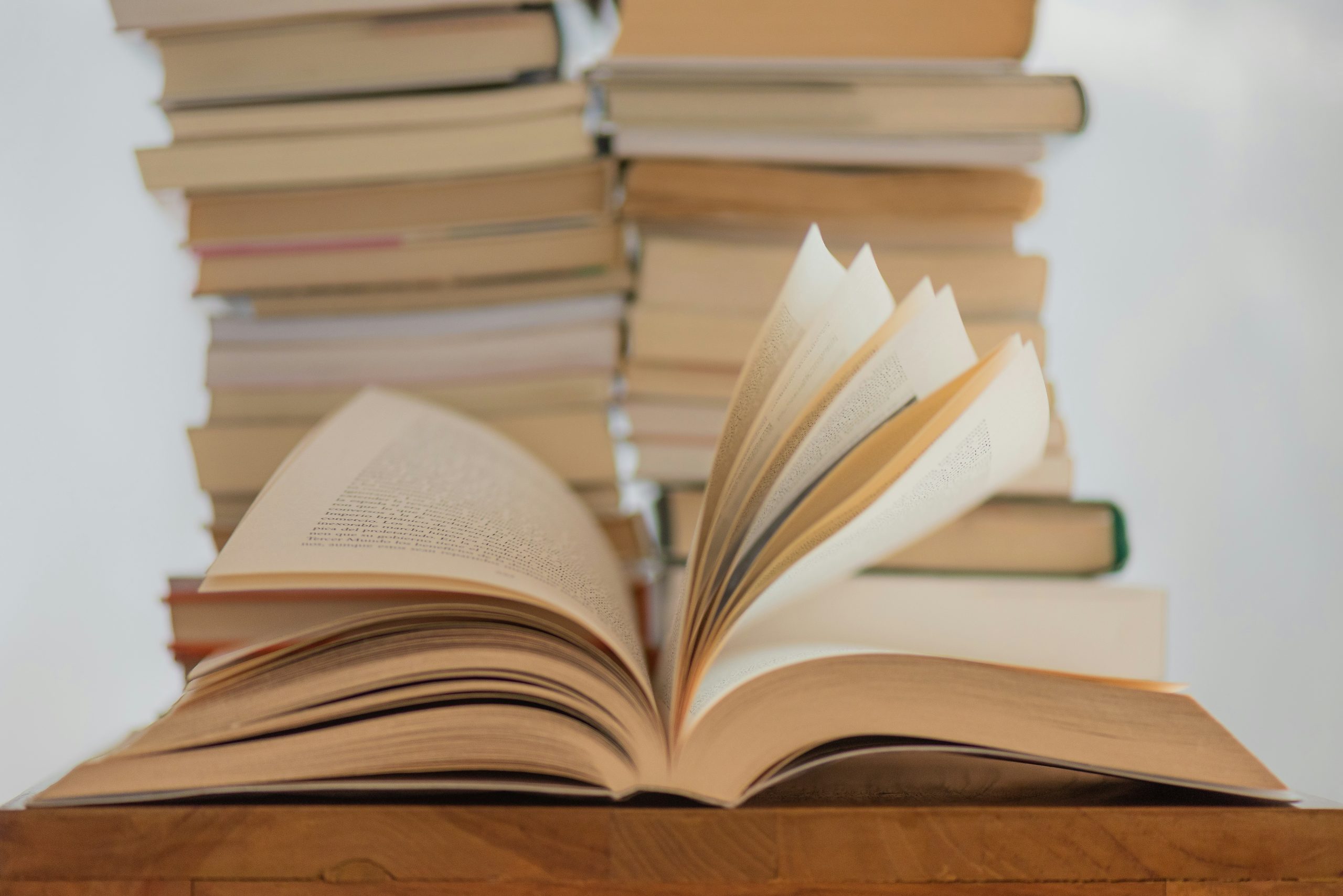interviews
INTERVIEW: Patricia Lockwood, author of Motherland Fatherland Homelandsexuals
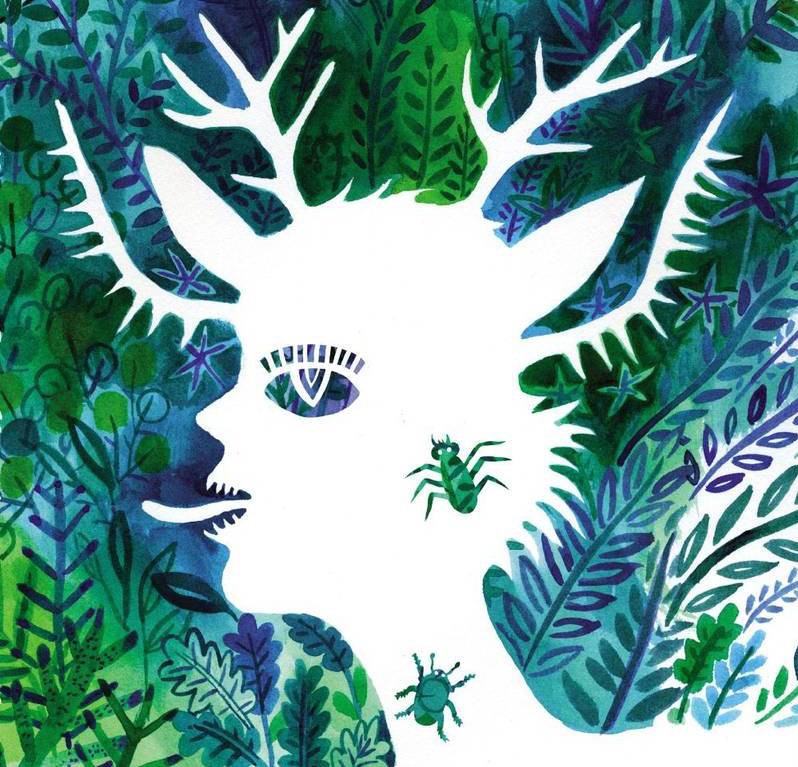
by Hilary Lawlor

Patricia Lockwood, poet, hilarious twitter wizard, and general destroyer of gender and sexuality stereotypes, recently stopped in to the Elliott Bay Book Company in Seattle to do a reading in support of her new book, Motherland Fatherland Homelandsexuals. I was lucky enough to get to talk to her on the phone beforehand and ask her a few pressing questions about her poetry, lifestyle, and predictions about future incarnations of tit pics for the good of the public.
Hilary Lawlor: As a bookseller, I often have to recommend “also-reads” to people looking for books by a certain author. Who would you want a bookseller to recommend alongside your work?
Patricia Lockwood: So, I’ll go with more modern people, because they don’t necessarily get as much play. Someone like the guys who run Octopus Books, the press that printed my first book, Zach Schomburg and Mathias Svalina, that would be good. Mark Leidner, I really love — I think if people are interested in what’s going on on Twitter, and how that can overlap with literature, Mark Leidner and someone like Melissa Broder, as well, would be excellent. Elisa Gabbert is another really good one.
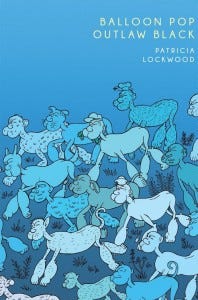
HL: I read recently that your father was a catholic priest — how do you think that affected your poetry?
PL: Well, a lot of religious language and a lot of liturgical language, I would say, was built into me from a pretty young age. Catholics don’t necessarily read the bible as much as other denominations do, but we had it in our house, so it’s very steeped in that language. But there was also something a little bit more subtle, which had to with authority: I think that when you see your father get up in the pulpit every Sunday and speak with this natural inborn authority, in this sort of declamatory language, it shows itself as a possibility to you, something that you can do. I felt, from pretty early on, that I had a natural sense of authority in my voice, this sort of natural sense of speaking from the mountaintop. I think that’s where this sense came from.
HL: In that same article, you said that you moved out of your parents’ house at 18 and referred to yourself as “18 and a poet” — if you could go back in time and give yourself any advice at that age, what would it be?
PL: Oh, lord. I would probably — this is more personal, but I would tell myself that it’s okay to stand up for yourself. I think a lot of good girls grow up just not really knowing they have that option, and I mean that in a wider sense, too. It’s okay to be assertive, it’s okay to feel like you can take up space in the world. I think a lot of people who’ve been raised to act well and be accommodating to people just don’t even know that that’s an option, or that it’s a desirable option. So, I think that’s the main thing I would say — I don’t know that I was timid, necessarily, but I felt more that I existed for other people. And you have that, too, when you have the sort of home that I grew up in, where it was a little bit more traditional gender roles and seeing your mom acting in a very accommodating way, and you grow thinking that that’s something that you’re going to do, too. I think that I would say that it doesn’t necessarily have to be that way.
HL: You also mention that you were self-taught, at least in terms of poetry and literature — what was that like?
PL: I think the nice thing about not going to college is that I never had certain books ruined for me. I think that can be a major side effect of people going through really, really intensive schooling, and that’s not necessarily something that has to happen. So, you know, when you’re about 18, 19, 20 years old, you read things in a very wide-ranging way. You’re not necessarily thinking about what you should be reading. You pick up books in a much more grazing and open sort of way, and I think that was good, because what happens instantly after that period for a lot of people is that they go to college, and then it’s more scholarly — you’re given a curriculum. So, I think that I was able to extend that sort of free-ranging period for longer, which was good. And it’s an interesting thing about being self-taught, too, that you can really just follow a thread of curiosity as far as it takes you. Other things aren’t bearing down on your time, so, you can really just follow these instincts. So, the sort of reading that you do is more like, instead of a straight line, it’s more like a tree, it branches outwards, things touch lightly off each other. So, I do think it’s a little bit different, but I wouldn’t presume to know what it’s like for people who do undergo more intensive intellectual programs. But, I think that’s what happened for me.
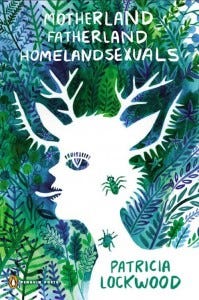
HL: What do you make of your designation as a sort of poetic beacon for sexual equality? (laughter) I just mean that many of your poems seem to take today’s stereotypical depictions of gender and sexuality and sort of throttle them with humor. So, what do you make of that role?
PL: Well, it’s very interesting because I’ve been sort of surprised by some of the reaction to my second book, and I was thinking, you know, this didn’t happen with my first book at all. Then I went back and looked at my first book, and I realized there was no sex in my first book whatsoever. I think some of the responses I’ve received have been really enlightening in that regard, in that I’m seen in a much more gendered way. More specifically, like a young sexual poet, which is really funny to me, actually, because what I was doing in that book was following a theme. I think that it is humorous, but I think that it also has bite to it, and so you do sense among some readers a certain factor of intimidation, which is okay. But, it’s interesting, because when you’re writing on your own, you’re not necessarily thinking about how people are going to respond, so, when this one came out, I thought it was really interesting that I was cast that way, or that people would talk about my appearance in things like reviews and articles, because that had just never happened. And I was really surprised, and then I thought, “Oh, it’s because I’m writing about sex.” It just had not occurred to me that that would happen. It sort of caught me by surprise. I was interested in that, but, you know, it does make sense, and it makes sense more in light, too, of what I’m doing on Twitter, which is very much my natural way that I would joke with my friends. I’ve always been fairly inappropriate in my jokes, and I forget sometimes that I have this poetic persona, and in my own mind it’s like this towering column of seriousness, and then I’m like, wait a minute, you’re joking about, like, lucky charm sex online, so it makes total sense that people are going to look at you in a different light now.
HL: How did you become involved with the “weird Twitter” movement? Or is there some sort of taboo around it, like “the first rule of weird Twitter is you don’t talk about being part of weird twitter?”
PL: No, no, it’s nothing like that! People in it don’t really use that name, if you can even be in it. I’m already appropriating language that I don’t even really believe in. But what happened was, I joined up there with a few people I knew — my friend Greg Erskine was on there, people like ExtraNapkins, and they were sort of touching on these groups, and that was my entree. So, I just got on there, and I was tweeting in my normal voice, which turned out to be very congruent, or harmonious, with this kind of thing that they were doing .So, the first five or ten people that I followed were all these weirdos. It wasn’t like I was getting on there and following, you know, Barbara Walters — I don’t even know if Barbara Walters is on there. It wasn’t like I was following CNN to get news reports, it was just weirdos who were making jokes and doing this weird sort of literature. And it became more of a thing later, because a lot of those people are extremely funny, extremely literate, and then people were writing about them more, and sort of talking about them in terms of some broader coalition, which is not really how we thought of ourselves, and which made us laugh. We weren’t taking that sort of thing particularly seriously. But it really was just because my voice, I think, dovetailed well with those voices, and because my friends were on there, and then it was like, well, if I tweet these sorts of things, and they tweet these sorts of things, we start using common language or cross-pollinating each other, you have sort of a moment of group creativity.
HL: How do you feel about — so, there was that one AWFUL review of your book that everybody knows about. How do you feel about the connection made in that review of your poetry and your tweets?
PL: There does seem to be a conflation that I was not expecting. I think it is true that there’s a twitter persona I have that doesn’t necessarily, in my mind, have anything to do with the speaker of my poems. I was taken a little bit aback by that. I think it’s natural for people to do that, especially if they’re casting me in some sort of “social media phenomenon” role. Anyone who’s in that sort of position doesn’t think of herself that way. It sort of did take me aback.

HL: If writing is your main profession, how do financial considerations affect your writing life? At least, prior to your recent published successes.
PL: Yeah, it’s probably bad that they don’t enter into it at all. I think a normal person, or the way normal people participate in the world is they get up in the morning and think, “If I’m going to survive in this world, I can either go to my job or not go to my job,” and for most people, that ends in them leaving their house and going to a physical job somewhere. I wake up in the morning and I just don’t make that consideration at all. I make the consideration about what I’m going to be writing that day. It’s something that ought to be entering in, and I understand that it’s a very unusual that it doesn’t for me. I think it’s interesting, too, because I think a lot of people would assume that I’m in some sort of financially privileged position, which is the opposite of true. If I don’t have enough to eat this week, for most people that would result in going out and getting a job, and I’m like, “I don’t have enough to eat this week, what am I going to be writing tomorrow? How can I work on this poem, how can I fit this into a manuscript I’m working on?” So, I’m not really sure how that works, if it’s some sort of absentminded professor syndrome, or just a person who otherwise should’ve become a nun, cloistered and fed by other people three times a day. I’m not really sure what it is.
HL: When did you know that you would be a poet and what spurred the decision to pursue, mainly, writing, every day, as your primary profession?
PL: I’m sure there’s a compulsive element to it for people like me, but it was just always what I was going to be doing. It was always more important than other things; other things would go by the wayside so that I could do that. When people ask me this question, I try to think back to the specific time that, you know, the clouds parted and the sunlight descended and I knew, but it was just always there. I loved to read books about kids who were writers, you know, back in the day, so that probably had much more of an influence than I thought. Books like L.M. Montgomery’s Emily of New Moon series, I think if you read books like that early enough, I think you can really get the sense that some people, even people who are kids, feel called to this, in the sense of it being a vocation, and it really naturalizes that for you, and it just makes the path seem like a very legitimate one.
HL: If Walt Whitman and Emily Dickinson are the mother and father of American tit pics, what do you think future poets will one day say you’re the mother or father of?
PL: Oh my god, we’re going to have something in the future that is so much more revealing than tit pics, and we don’t even know what it is yet. And THAT is what I’m going to be the dad and the mom of. But, again, we can’t even conceptualize it at this point, our heads couldn’t even hold it, it’s SO NUDE. We’re just going to have to wait, like, a hundred and fifty years and see what they come up with, and that will be seen as my lineage.





